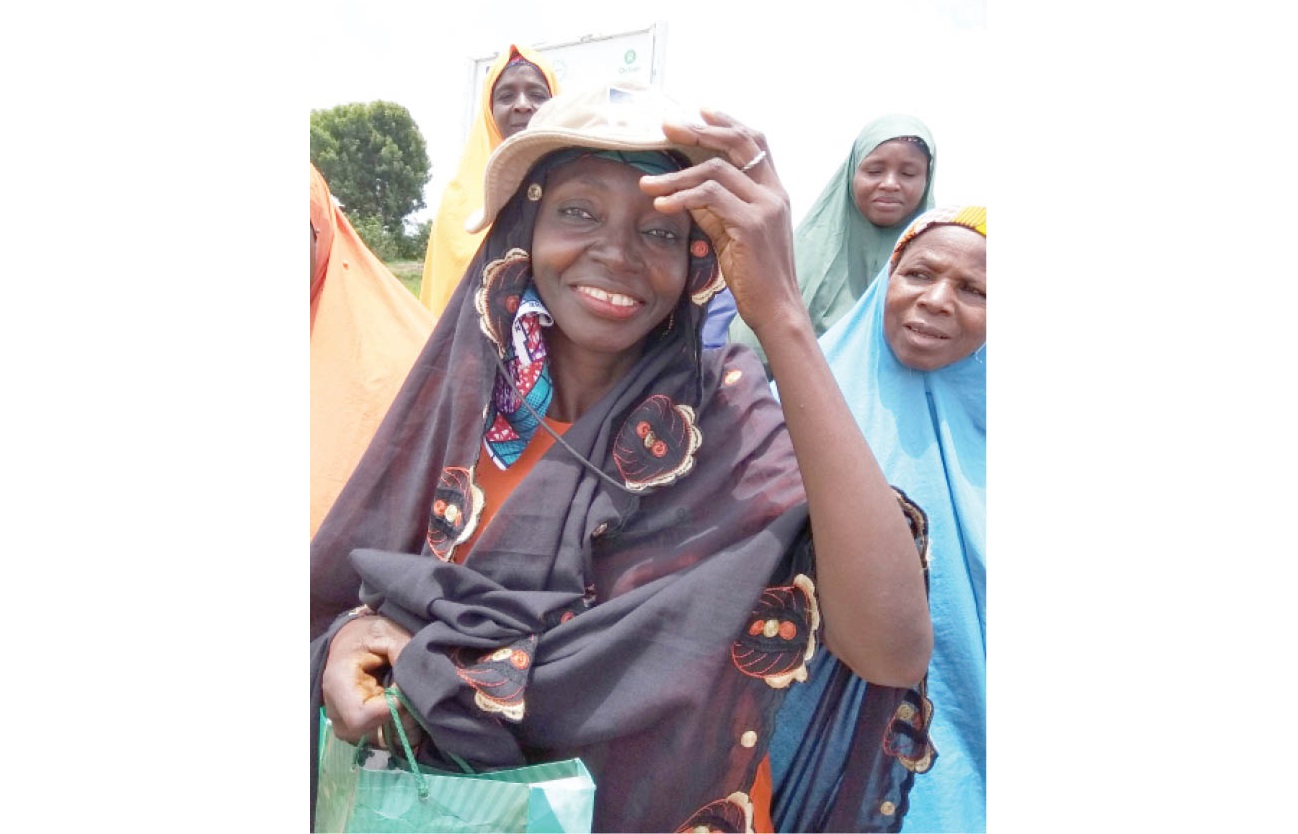In Tarasa, narratives are changing for rural women
They were very elated with their accomplishments. The women of Tarasa 2 community in Kebbi State, northwest Nigeria, were eager to share their feats in tackling poverty and realising sustainable livelihoods. “Before, we couldn’t do anything on our own. We could not buy even the seeming least item. When we give birth, we expected everything […]

Malama Saudatu PRO women’s wing Farmers Association ,Tarasa
They were very elated with their accomplishments. The women of Tarasa 2 community in Kebbi State, northwest Nigeria, were eager to share their feats in tackling poverty and realising sustainable livelihoods.
“Before, we couldn’t do anything on our own. We could not buy even the seeming least item. When we give birth, we expected everything from our husband,” one of the women explained.
“But now we can do so many things without over-depending on our men.”
The number of female farmers in Tarasa has quadrupled in the last couple of months, according to Malama Asmau, the extension worker with the community.
“Before there were 25 – 30, but now we split the group of female farmers into additional groups because they are now more than 100,” she revealed.
“Many women are coming out to engage in it,” she added.
Tarasa is one of the 30 communities in Birnin Kebbi, Danko Wasagu and Jega local government areas of the state benefitting from the Oxfam programme of building food security and resilience.
It is targeted at vulnerable farmers and host communities including women and youth in northern Nigeria.
Asmau said her primary duty is to coordinate women groups, know their concerns, and show them how to go about their farming.
She noted that rural women had adopted the new techniques with the resultant boost in the number of female farmers through the programme.
The farmers in the village learned new techniques of rice farming, which has enhanced their productive capacities.
Saudatu Muhammad is the spokesperson, women wing of the farmers’ association in Tarasa.
She disclosed: “I went into farming because I find it to be a sustainable and dependable venture. I am delighted embracing the modern system of farming. We have gained a lot from this method of farming. I get much from it.”
She recalled that before, they sometimes faced constraints of inadequate funds to pay for labour.
With the introduction of the new system of farming, she pointed out that they have now more than doubled production and are more economically empowered.
“With the current method, I harvest 50 sacks of rice, while before I barely got 20 sacks,” Saudatu said.
According to her: “Now, I have been able to overcome most of the financial challenges now.”
The female farmers, however, lamented that the most challenging aspect is fuelling water pumping machines. They also decry delay in getting support from the government, claiming that their male counterparts get fertilizer earlier than them.
The female farmers appealed for timely support to harvest in a good time.
On the home front, some of the women farmers claimed that their husbands do not allow them to farm on their own. “They prefer a joint farm, or they just give us a small portion of the plot.”
For her, Asmau, the female extension worker who also spoke on the challenges she faces, solicited enhanced stipend. “My allowance is just too small,” she voiced out.
“The challenge we notice is that some of them do not have full encouragement from their husbands. They do not have big plots to farm on, and some of them, when they’re given fertilizer, their husbands want to highjack it from them,” she said.
She urged the relevant authorities to always consider women in the allocation of plots. “They should include women too because women are trying. We have so many women farmers. If they are encouraged, they will farm more than men farmers.”
Also, in Tarasa, the women revealed that grains bank was assisting households in times of need.
“I benefitted from the food bank at one such tough time and members of the community also quite appreciate it,” one of the Tarasa dwellers, Fatima Aliyu also said.
She recalled that some groups received 8-10 sacks from the grains bank for distribution to their members at a time they ran out of foodstuff.
“They returned the grains after harvest. However, the beneficiary adds an some measures as their contributions to the bank for the benefit of others.” Usman Faleye, Oxfam in Nigeria Governance Coordinator for the PROACT project in Adamawa and Kebbi, shed light on the initiative.
He stated that the project promotes agriculture-driven economic growth and improves the living conditions of farming households.
Faleye said the project aimed at helping females overcome disparities in the distribution of household workloads, use of resources, and sharing of the benefits of production.
The households nurture the animals to maturity and reproduction. The beneficiaries then transfer the offspring of the she-goat to the neighbours to boost livestock production in the community.
“We are very excited over our empowerment,” Malama Saudatu declared.
